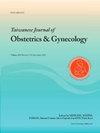Health promotion lifestyle and its influencing factors for women undergoing infertility treatment
IF 2.2
4区 医学
Q2 OBSTETRICS & GYNECOLOGY
引用次数: 0
Abstract
Objective
To explore the health promotion lifestyle and its influencing factors in women undergoing infertility treatment.
Materials and methods
This study employed a cross-sectional survey to collect data from women undergoing infertility treatment at the obstetrics and gynecology outpatient clinic of a medical center in northern Taiwan. Data were collected from December 18, 2021, to March 13, 2023, including basic demographic information and the Health Promotion Lifestyle Profile (HPLP). A total of 103 participants were included in the study.
Results
The average score on the HPLP for participants was 65.28 (out of a total of 120). Among the six subscales, social support received the highest score, while exercise behavior received the lowest score. Factors significantly associated with the score included exercise habits, infertility-related stress, and occupation (F = 7.904, p < 0.001). Women who became pregnant after treatment exhibited better nutritional behaviors compared to those who did not conceive (2.08 ± 0.55 vs. 1.80 ± 0.58, p = 0.038). Women who did not become pregnant reported higher economic stress related to infertility treatment (t = 2.169, p < 0.05). Women who started treatment an average of 37 months after marriage experienced higher infertility treatment stress compared to those who sought treatment within 12 months of marriage (F = 3.342, p < 0.05).
Conclusions
A health-promoting lifestyle should be included in the routine care guidelines for infertility treatment to enhance the chances of conception, particularly focusing on improving nutrition and increasing exercise.
不孕不育妇女的健康促进生活方式及其影响因素
目的探讨不孕不育妇女的健康促进生活方式及其影响因素。材料与方法本研究采用横断面调查法,收集在台湾北部某医疗中心妇产科门诊接受不孕症治疗的妇女资料。数据收集于2021年12月18日至2023年3月13日,包括基本人口统计信息和健康促进生活方式概况(HPLP)。共有103名参与者参与了这项研究。结果参与者的HPLP平均得分为65.28分(总分120分)。在六个分量表中,社会支持得分最高,运动行为得分最低。与得分显著相关的因素包括运动习惯、不孕相关压力和职业(F = 7.904, p < 0.001)。治疗后怀孕的妇女比未怀孕的妇女表现出更好的营养行为(2.08±0.55比1.80±0.58,p = 0.038)。未怀孕的妇女报告与不孕症治疗相关的较高经济压力(t = 2.169, p < 0.05)。与结婚12个月内开始治疗的女性相比,结婚后平均37个月开始治疗的女性经历了更高的不孕不育治疗压力(F = 3.342, p < 0.05)。结论应将促进健康的生活方式纳入不孕症治疗的常规护理指南,以提高受孕率,尤其应注重改善营养和增加运动。
本文章由计算机程序翻译,如有差异,请以英文原文为准。
求助全文
约1分钟内获得全文
求助全文
来源期刊

Taiwanese Journal of Obstetrics & Gynecology
OBSTETRICS & GYNECOLOGY-
CiteScore
3.60
自引率
23.80%
发文量
207
审稿时长
4-8 weeks
期刊介绍:
Taiwanese Journal of Obstetrics and Gynecology is a peer-reviewed journal and open access publishing editorials, reviews, original articles, short communications, case reports, research letters, correspondence and letters to the editor in the field of obstetrics and gynecology.
The aims of the journal are to:
1.Publish cutting-edge, innovative and topical research that addresses screening, diagnosis, management and care in women''s health
2.Deliver evidence-based information
3.Promote the sharing of clinical experience
4.Address women-related health promotion
The journal provides comprehensive coverage of topics in obstetrics & gynecology and women''s health including maternal-fetal medicine, reproductive endocrinology/infertility, and gynecologic oncology. Taiwan Association of Obstetrics and Gynecology.
 求助内容:
求助内容: 应助结果提醒方式:
应助结果提醒方式:


